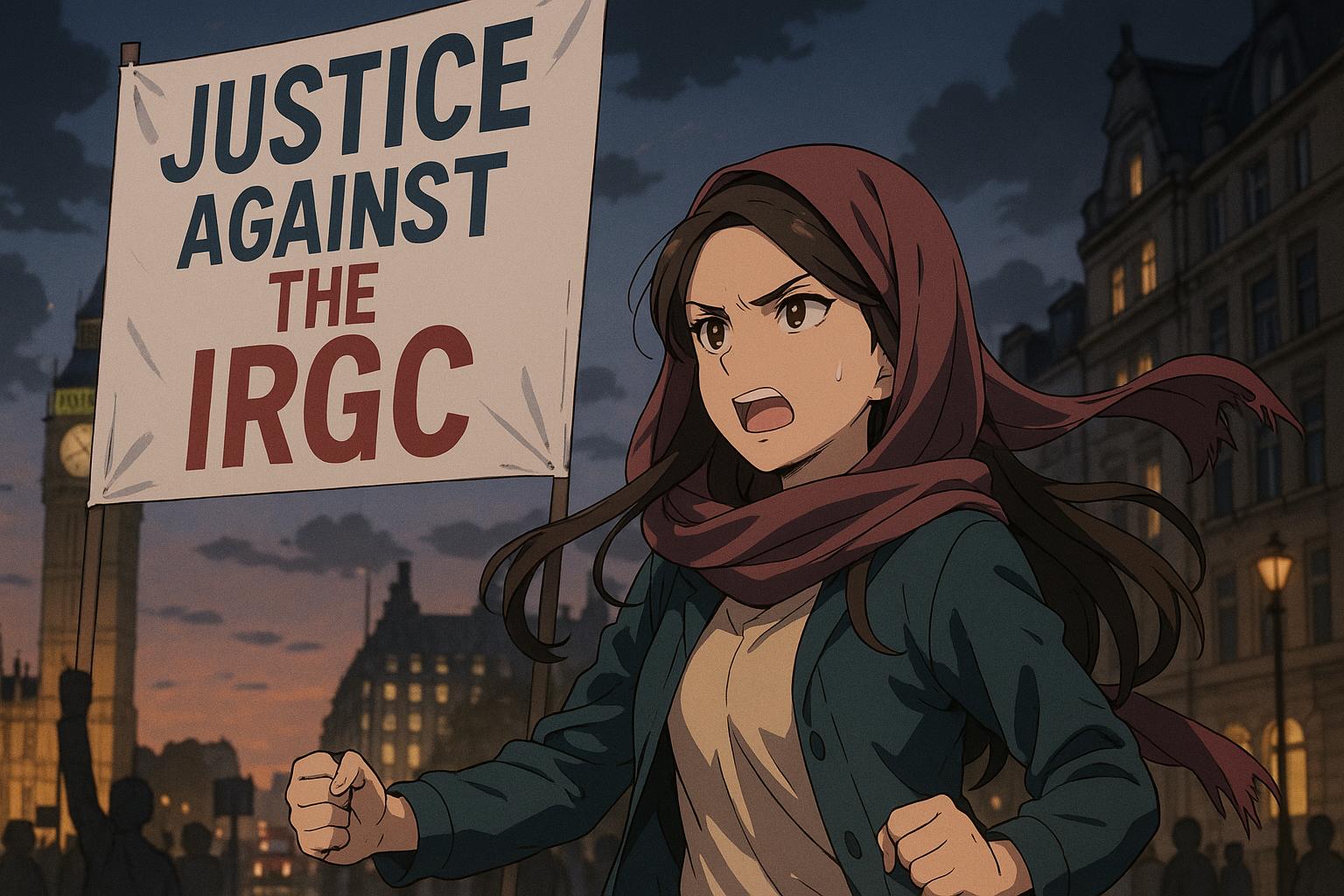Ministers in the UK are under increasing pressure to ban the Islamic Revolutionary Guard Corps (IRGC), Iran’s main military and religious body, amidst alarming tensions between London and Tehran. The demand to classify the IRGC as a terrorist organisation has gained widespread support, with over 550 MPs and peers endorsing a letter advocating for this designation. This call to action is particularly urgent in light of Iran's persistent crackdown on dissent and the repressive 'hijab and chastity law' that has ignited protests led primarily by courageous women.
Leading voices among the signatories include prominent figures from the Conservative Party, such as Sir Iain Duncan Smith and Suella Braverman, alongside Labour's Lord Kinnock. These MPs assert that the mandatory hijab stifles activism, restricting those fighting back against the Iranian regime. Their letter warns that any appeasement towards Tehran undermines democratic values and global safety as Iran relentlessly pursues its nuclear ambitions and continues its role as a state sponsor of terrorism.
Recent disturbing incidents, including the arrest of three alleged Iranian spies in London targeting journalists linked to the Persian language television network, Iran International, further highlight the urgent need for decisive action against the IRGC. These individuals had reportedly gained asylum in the UK, allegedly collaborating with Iran’s intelligence services, raising significant fears about espionage and Iran’s activities within British borders.
The call to proscribe the IRGC is not a fresh issue; similar demands have surfaced repeatedly as UK politicians stress the group's involvement in various regional conflicts. In April 2024, Shadow Defence Secretary John Healey urged the government to take decisive action against the IRGC’s continued support for armed militias and its destabilising actions across the Middle East. This sentiment aligns with a broader international consensus—the United States and other nations like Bahrain have already classified the IRGC as a terrorist entity.
Historically, the IRGC's record of involvement in violence raises grave concerns over its role in promoting terrorism and obstructing peace efforts. The collective call from over 100 parliamentarians in February 2024 for a robust UK strategy to counter the IRGC's influence underlines the growing impatience with the government’s tepid response. Moreover, the US State Department has long emphasized the IRGC’s significant financing of global terrorism, linking it to Tehran's involvement in recent violent episodes associated with Hamas.
Despite the mounting calls for action, the UK government has ambivalently refrained from designating the IRGC as a terrorist organisation, worried that it might interfere with crucial diplomatic efforts. This hesitation reveals a troubling complexity in the UK’s relations with Tehran, especially as the IRGC remains a critical supporter of the Iranian regime, executing numerous covert operations and disrupting peace globally.
As unrest against conservative ideologies festers within Iran, the imperative for a resolute response becomes clearer. Many politicians argue that recognizing the Iranian people's right to regime change is essential; banning the IRGC could empower the movement advocating for change. The evolving geopolitical landscape leaves the UK at a crossroads: to decisively confront the IRGC, aligning with the growing international consensus, or to cling to a cautious stance that risks appearing weak on the global stage, especially as a recent political shift has left the nation grappling with a new Labour government that many view as incapable of safeguarding national interests.
Source: Noah Wire Services
